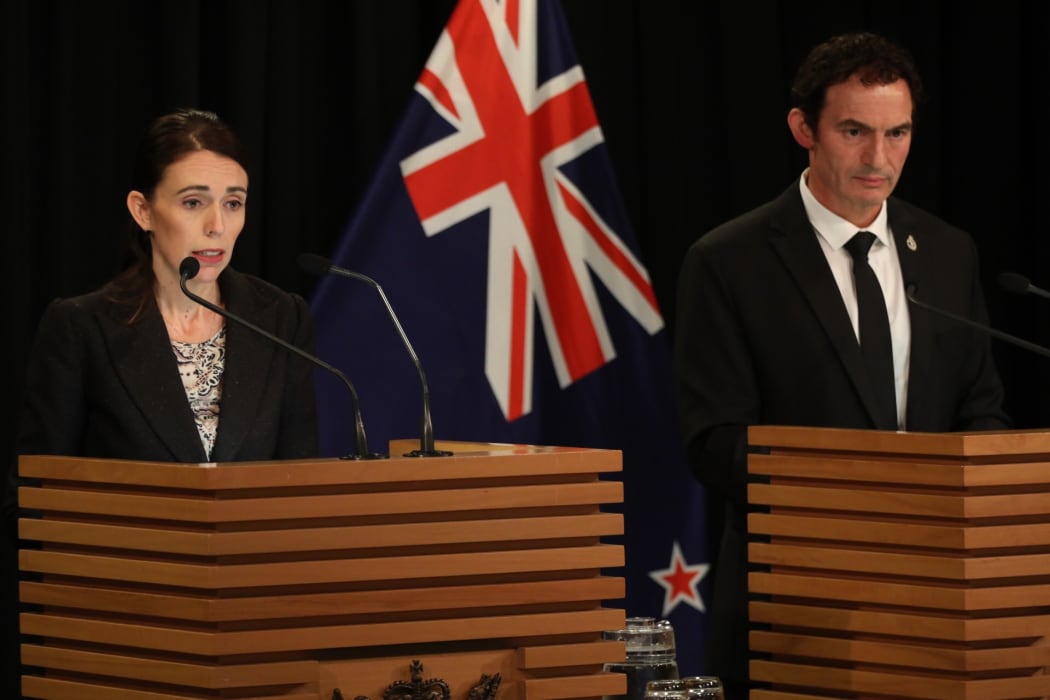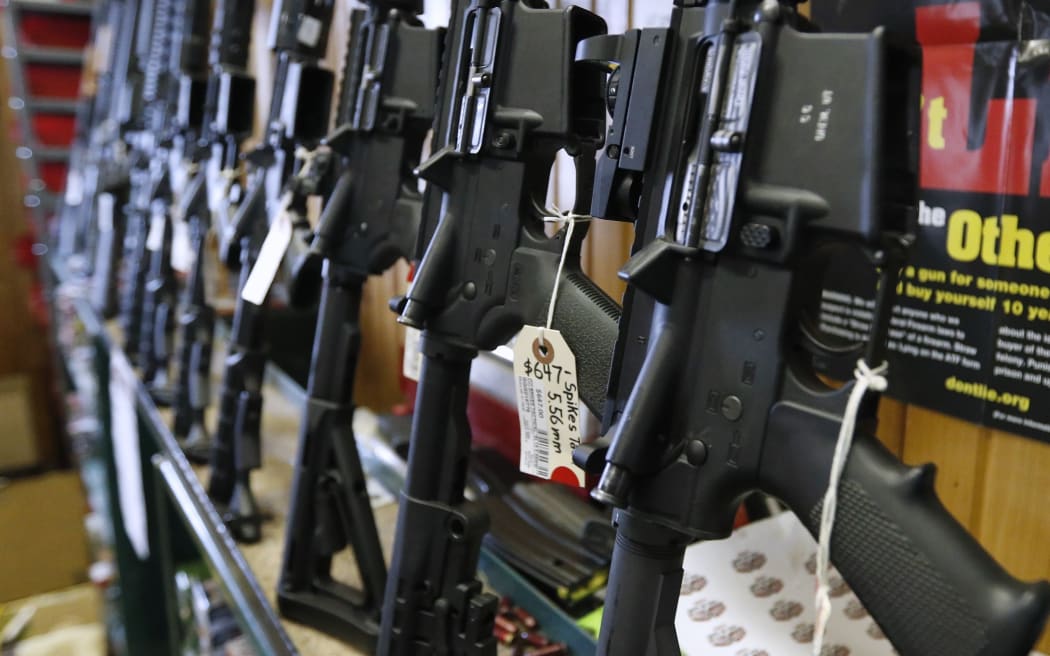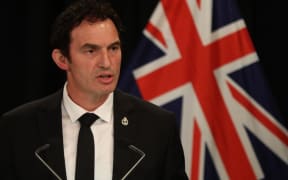The speed with which the government has fast-tracked changes to firearms laws has left the gun lobby in a spin, according to an Australian academic.

Prime Minister Jacinda Ardern and Police Minister Stuart Nash on 21 March announcing the ban on military style semi-automatic guns and assault rifles Photo: RNZ / Ana Tovey
By the end of next week, politicians expect the Arms Amendment Bill to come into force.
It will ban semi-automatic weapons and military style semi-automatics, with the exception of shotguns and low-calibre rifles.
Parts, magazines and ammunition which can make a gun illegal will also be banned, and there will be tougher penalties for people breaking firearm laws.
Should it come in by Friday next week, it will have taken just four weeks since the Christchurch mosque attacks which killed 50 people.
Four weeks is not long for those in the gun business to come up with a meaningful reaction to the proposals, and Gun City - which sold the accused gunman four of his firearms - is seeking to slow down the process and ensure an in depth discussion takes place on what law changes should be made.
In a letter sent to people who have previously purchased items from the retailer, Gun City said it wants gun owners to be treated fairly, and asked them to contact lawmakers and media.
"Step One: Sign the petition asking for parliament to give this consultation the time it deserves," the letter read.
"Step Two: Write to the people who are controlling our destiny, MPs, the police, newspapers, television and radio. We suggest you avoid direct interviews with newspapers, television and radio as you may not be presented as you wish.
"Step Three: Follow firearms owners groups.
"We want to encourage shooting sports unity as we are stronger as one group. Let's stand united as Firearms License holders rather than dividing into different groups."
But the speed with which politicians have rushed through legislation is posing problems for the gun lobby.
The director of GunPolicy.org, Philip Alpers, said the government had followed Australia's playbook for how to change gun laws.
"With gun control it's gratifying to see this government do an end run around the gun lobby," Mr Alpers said.
"That's exactly what happened in Australia. John Howard took only 12 days after Port Arthur and that's what won the battle, he outpaced and outsmarted and just outflanked the gun lobby in a very short period of time.
"New Zealand's done it in an even shorter period of time."
Speed, according to Philip Alpers, is crucial when countering a gun lobby which can mobilise quickly, and has helped halt gun law reform for more than two decades.
Professor Kevin Clements, of the University of Otago, praised the quick actions of the government and said it was about time the laws changed.
"This is exactly in line with the suggestions and recommendations of Judge Tom Thorp from 21 years ago, and it should have happened a long time ago rather than having to wait for a tragedy to occur.
"This is a wonderful step forward."

Semi-automatic AR-15s on sale at a US store Photo: AFP
The only thing missing from the proposed law changes is gun registration, and Mr Alpers said it would be an important addition.
"New Zealand legislation is now right up to power with Australia," he said.
"There are a few small exceptions in the areas of domestic violence and suicide prevention, but gradually those will be tightened up I should imagine over the years.
"The registry is the elephant in the room, if you don't have a registry New Zealand remains almost alone with the United States in not having a register of firearms, so that's an important next step."
Professor Kevin Clements agreed.
"Otherwise we don't know where they are," Mr Clements said.
"At the moment we do know where most of the semi-automatics are because they've been owned by about 9000 odd A-class owners, but we don't know how many other military style semi-automatics are around.
"We do know that there are 1.5 million weapons in circulation, but if you add in things like air rifles that jumps to possibly 3 million firearms in New Zealand, which is just crazy when considering we're a population of only 4.5 million."
As part of the law change, there will be an amnesty for owners of the banned weapons, and a buy-back scheme for those who hand in their semi-automatics.
Deputy prime minister Winston Peters said the buy-back scheme was expected to cost between $100 million and $200m.






